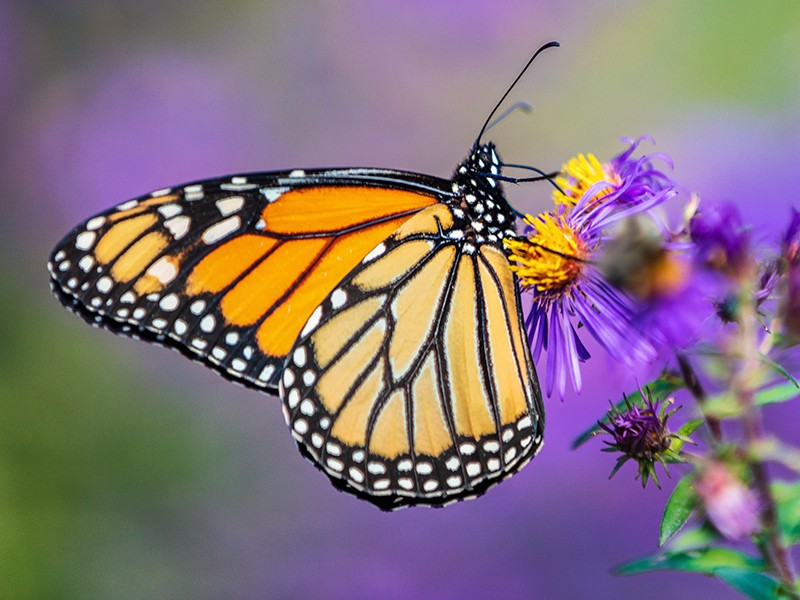For two decades, scientists thought populations of the monarch butterfly were declining, but new research from the University of Georgia suggests that is not the case.
By carefully examining the monarch observations, the research team found an overall annual increase in monarch populations, suggesting that the breeding population of monarchs in North America is not declining on average.
"For the longest time, we've been monitoring the population at their wintering range, down in Mexico or in if you're on the West Coast, it's in California," Andy Davis, corresponding author of the study and an assistant research scientist in UGA’s Odum School of Ecology, said. "If you look at those wintering numbers, the size of the wintergreen colonies, they've been declining for about 20 years now."
But when the monarchs return north in the spring, the populations are rebounding, the research found. Davis said a single female can lay as many as 500 eggs, allowing the population to grow quickly.
Like birds, monarch butterflies fly south for the winter, usually to Mexico or California.
"Most insects kind of just sort of sit and hang out during the winter as pupa or eggs," Davis said. "But the monarchs all sort of get up and move out of get out of dodge, so to speak, and they've probably been doing this for eons."
Davis said the migrating populations may be declining because some monarchs aren't making to Mexico. Many die from striking cars or from weather conditions.
Monarchs aren't just beautiful, Davis said. They and other insects are a necessary part of a healthy ecosystem. Some scientists have been worried about a so-called insect apocalypse, but this study suggests the situation isn’t that dire.
"Insects are kind of like the base of the food web," Davis said. "We need insects for pollination and for feeding baby birds and that kind of thing. And so monarchs, with their numbers going up and down, could be a sign of the overall insect population. That sort of indicates that maybe things aren't as bad as people thought for insects."









